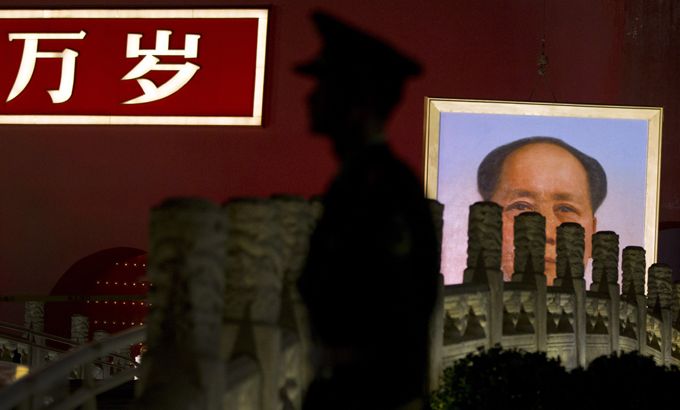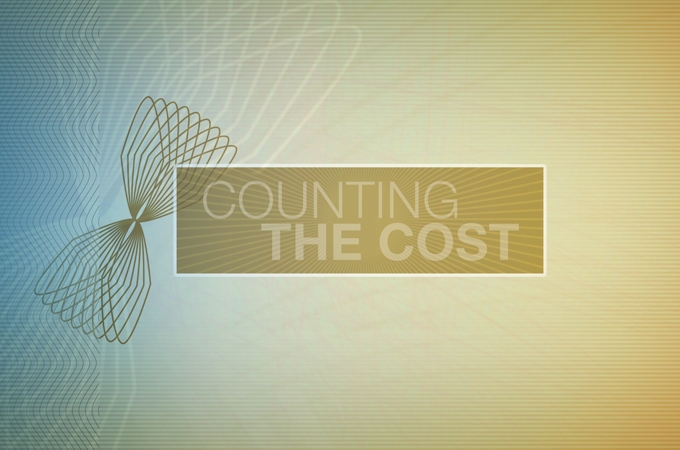
China: Money, power and politics
As the People’s Republic is about to change its leadership, we ask how financially-rewarding being a politician can be.
We all know China has got money, but where does it come from? And how wise or controversial is it to have China’s billions tied up in political circles?
This week on Counting the Cost, we find out where China’s riches and influence really come from – especially as there is about to be a leadership change there at next month’s National People’s Congress (NPC).
China is increasingly a communist country in name only. It has embraced capitalism – being an economic powerhouse, “the world’s factory”. But that prosperity extends well into the political echelons, in some very non-communist ways.
Bo Xilai, the politician who was publically expelled from the Communist Party, managed to amass $1.3bn, and in the process sent his son to a public school in Britain – whilst preaching communist ideals.
Ling Jihua, a close ally of President Hu Jintao, was demoted from the party’s politburo general office. The South China Morning Post reported Ling’s son died when his Ferrari crashed, raising questions about how a government official on less than $30,000 a year could possibly afford a luxury car worth $800,000.
The Communist Party is sensitive to such shows of luxury, as the divide between the rich and poor in the country grows. But interestingly the latest Hurun Report, a luxury magazine which ranks China’s richest, says there are 251 billionaires in China.
The richest is soft-drinks entrepreneur Zong Qinghou, who is also the 23rd richest in the world. He is estimated to be worth $12.6bn. Now he has been selected to attend the National People’s Congress (NPC) – and he is not the only one.
The net worth of the 70 richest delegates in the NPC rose to $89.8bn in 2011. Compare that to the $7.5bn net worth of all 660 top officials in the US government, including President Barack Obama.
So all this gives you an idea of where China is headed. There are plenty of people with power and money who will shape the country’s future.
Joining us from Shanghai is Rupert Hoogewerf, the man behind Hurun Report, to talk about China’s rich.
Also joining us is Martin Jacques, the global best-selling author of When China Rules the World and a senior visiting research fellow at the London School of Economics.
With the National People’s Congress coming up next month where power will be effectively handed over, what will change when Xi Jinping, is a bit of a crusader against corruption, becomes China’s next leader?
Iran’s currency collapse
Iran’s currency, the rial, has hit record lows againts the US dollar and inflation is running at more than 25 per cent.
Mahmoud Ahmadinejad, Iran’s president, blames his country’s enemies for it all, but insists the weak currency is not hurting the economy.
He said: “Everyone is aware that foreign trade and commerce don’t have a very high share in the Iraninan economy. But the figures are being used in the psychological war for a greater effect on the markets. The number of US dollars being exchanged in our country is not that big. But some people are mixing the internal situation and external trade.”
We look at Iran’s economy and explain why Iran’s currency is in free fall. What is going on in Iran and is it the result of international sanctions?
Vietnam’s crisis
Vietnam looked like a promising bet – with its communist regime it could have been the next China – without the huge population. But beacuse of political mismanagement, the lack of roads and infrastructure the boom got out of hand. Banks were let off the leash and what happened next was almost predictable: Banking scandals, property collapse and despite strong growth, all the signs of deep rooted trouble.
Wayne Hay went to Vietnam to looka at how corruption, a banking crisis and a lack of leadership has left Vietnam wondering about what might have been.
Watch each week at the following times GMT: Friday: 2230; Saturday: 0930; Sunday: 0330; Monday: 1630. Click here for more Counting the Cost. Follow Kamahl Santamaria @KamahlAJE and business editor Abid Ali @abidoliverali |
